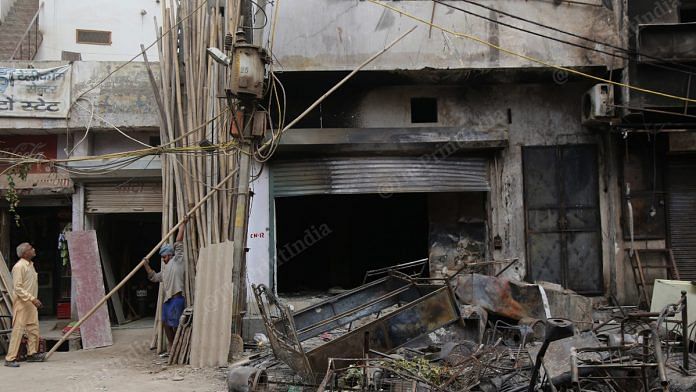 Delhi and after
Delhi and after
Ashutosh Varshney | Professor, Brown University
The Indian Express
According to Varshney, how we define and categorise the violence in New Delhi matters for the future of the city and a pluralist India. “In case Delhi 2020 is a pogrom and it reappears elsewhere, let us be clear that the future victims will be abjectly helpless. Those committed to a pluralistic India must be ready for an eventuality of the worst kind,” he writes.
 Yes, Greta Thunberg can
Yes, Greta Thunberg can
Vikram S Mehta | Chairman and senior fellow, Brookings India
The Indian Express
Mehta argues that teen activist Greta Thunberg’s protests have inspired a new response to climate challenge.
“She offers an example of what is possible if society deems that ‘enough is enough’ of ‘politics as usual’,” he writes. “The world is headed over the cliff. There is much to be done but a crucial next step is to integrate the developing world more firmly into the search for a global response.”
 What the Afghan peace deal means
What the Afghan peace deal means
Rakesh Sood | Former diplomat
Hindustan Times
Sood states that it is important to understand whether the Afghan peace deal is a US-Taliban deal or actually a peace resolution, which he adds is unclear as of now. “While the deal may well mark the end of the US war in Afghanistan, whether it actually ends conflict in Afghanistan remains an open question,” he writes.
 Can coronavirus cause a recession?
Can coronavirus cause a recession?
Ruchir Sharma | Global investor and author
Times of India
Sharma explains that it is not surprising that the global market fell sharply due to the fear of coronavirus, but the fact that it took so long to wake up to the threat is surprising.
“In the post-war period, recessions have been triggered by central banks tightening interest rates, or oil price shocks, never by a virus. But now, the transmission channel has changed,” she writes. “The virus has the potential of inflicting great damage on the markets if the fear psychosis intensifies, and the markets have unprecedented potential to inflict damage on the economy.”
 A plural legacy more vital than ever
A plural legacy more vital than ever
Mahesh Rangarajan | Teaches History and Environmental Studies at Ashoka University
The Hindu
Rangarajan argues that while there is a lot to argue about Jawaharlal Nehru’s record and legacy, his sense of history, culture and context acquires more relevance in preserving the idea of India.
“This was a man with wider horizons but a deep sense of India’s history, culture and context,” he writes. “In his testament he wrote of the Ganga as living entity. The river connects us to, ‘a memory of the past of India, running into the present, and flowing on to the ocean of the future’,“ says Rangarajan, quoting Nehru.
 Why telecom’s a mess
Why telecom’s a mess
Debasish Mallick | MD & CEO of IDBI Asset Management Company & former Deputy MD of EXIM Bank
Hindu Business Line
In lieu of the Supreme Court’s decision to not extend the deadline for payment of licence fees as appealed for by telecom companies, Mallick discusses the “ongoing price war” in the sector. He explains that the price has left companies with “little surplus to invest in business improvement” and calls for “a floor below which prices cannot be pushed down”.
 Riots happen because we tend to romanticize chaos
Riots happen because we tend to romanticize chaos
Manu Joseph | Journalist and novelist, most recently of ‘Miss Laila, Armed And Dangerous’
Mint
Joseph criticises feel-good news stories between Hindus and Muslims at this point of time as, he adds, it doesn’t help understand the ongoing riots or the deeper truth that “India operates through chaos”. “A nation born out of civil disobedience never had leaders of stature who deeply believed in civic order,” he writes.
 To what extent will coronavirus outbreak rewire global trade dynamics?
To what extent will coronavirus outbreak rewire global trade dynamics?
Mihir Sharma | Fellow, ORF
Business Standard
Sharma predicts that the “greatest long-term effect” of the coronavirus will be linked to the world economy’s dependence on Chinese activity. He says that the “departure of some manufacturing from China has been delayed by inefficiencies and sunk costs…such that clients have chosen to absorb significant cost increases rather than risk disruption to their supply chains”.



